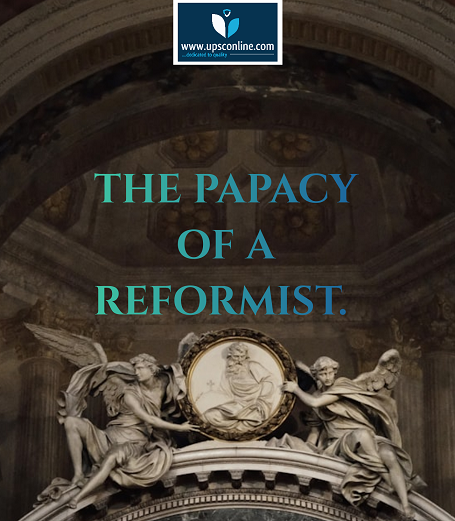Pope Francis, born Jorge Mario Bergoglio in 1936, became the 266th pope of the Roman Catholic Church in 2013. Known for his humility and progressive views, he focused on issues such as climate change, poverty, and interfaith dialogue. On April 21, 2025, the Vatican announced that Pope Francis had died aged 88.
Pope Francis, the Argentine Jesuit who became the first Roman Catholic pontiff from Latin America and eleventh Non-European pope.
His predecessor, Benedict XVI, was the first Pope to retire voluntarily in almost 600 years and for almost a decade the Vatican Gardens hosted two popes.
Pope Francis inherited a Church in disarray and worked hard to overhaul the Vatican’s central administration, root out corruption and confront the scourge of child abuse within the ranks of the priesthood – with mixed results.
During his papacy, Francis often clashed with conservatives, nostalgic for a traditional past, who saw the pope as overly liberal and too accommodating to minority groups, such as the LGBTQ community.
When Francis became the pope, Europe had largest share of cardinal electors. It was 52% in 2013 but now reduced to 39% in 2025.
The second largest group of electors is from Asia and Oceania, with about 20%.
Francis appointed nearly 80% of the cardinal electors who will choose the next pope, increasing, but not guaranteeing, the possibility that his successor will continue his progressive policies.
One of the hallmarks of Francis’ reign was his decision to appoint cardinals to far-flung regions – places where Roman Catholics make up a tiny minority or where the Church is growing faster than in the mostly stagnant West.
In his 12 year papacy, Pope Francis would go on to become a key figure in the global climate movement. As political leaders debated the technical and economic dimensions of the climate policy agenda, Francis, served as a voice of moral clarity, speaking and writing about the social consequences of human influence on the planet.
Francis’ most influential intervention came in 2015, when he published an encyclical—or a papal letter to his bishops meant to guide them in their work—focused on our changing environment
Francis shunned regal trappings, including the papal apartments. His habits favored simplicity. He was known to treat Vatican staff more as co-workers than employees
Francis famously called the Church a ‘field hospital,’ not a fortress. His openness to gay and lesbian Catholics — inconceivable during the era of Popes John Paul II and Benedict XVI — was one example of his interest in meeting people where they were, not where they doctrinally should be.
Francis was beloved among many progressive Catholics who saw him as an opponent of culture wars, a vindicator of social justice, and a champion of the spirit of the Second Vatican Council, which modernized and liberalized the church under Pope John XXIII in the 1960s.
Francis fiercely rebuked the “globalization of indifference” and the “idolatry” of money. He explicitly condemned “trickle down” economics as based on “a crude and naive trust in the goodness of those wielding economic power and in the sacralized workings of the prevailing economic system.
His approach generated many enemies on the Catholic right. Breaking with their long habit of deference to Rome, some conservatives, including bishops, excoriated him, sometimes even referring to him as heretical. But Massimo Faggioli argued that the burden for the splits did not rest on Francis.
He did not divide the Church,” Faggioli said. “The divisions were there already.” Francis made them “visible” because “he was not afraid to open a debate on issues that were considered taboo until very recently.”
Francis battled openly with American conservatives — including Catholics — particularly on the rights of migrants. In a letter about immigration to American Bishops on Feb. 10, he was unmistakably critical of President Donald Trump and Vice President JD Vance, a Catholic convert, without mentioning them by name.
He was critical of mass deportation drive. While remaining a steadfast foe of abortion, Francis sharply altered church priorities. Early in his pontificate, he declared that the church “cannot insist only on issues related to abortion, gay marriage and the use of contraceptive methods. This is not possible.”
Francis did not escape criticism from his allies. Like many leaders from the Southern Hemisphere, he was slow to criticize Russia’s invasion of Ukraine, though he later toughened his stance. He made only modest moves toward enhancing the power of women in the church. And though he eventually recognized the need for ongoing atonement by the church for the sexual abuse scandals, he did so only after early missteps.
But Francis’s papacy cannot be defined by American political feuds. More important was his reorientation of the church toward Latin America, Africa and Asia. His appointments altered the regional and philosophical balance of power within the College of Cardinals, which will pick his successor. Historical judgments of his tenure will rest in part on whether the forces he represented prevail in the coming conclave.
The pope is an institutional leader and a global political actor. Francis certainly played those roles, yet his worldview was antithetical to casting the papacy in this light. He was a spiritual rebel and happy troublemaker, pushing the church relentlessly away from clericalism and worldliness.
He criticised “spiritual worldliness”, which means, “being self-centred”. He never relaxed his sober approach or his strict lifestyle, which some have defined as almost “ascetic”.
He cracked down over the paternalistic government in Mexico, in 2016, he expressed shame over the exploitation of Indigenous peoples and prayed at the tomb of a bishop who adhered to liberation theology, a movement in which priests actively engaged in improving the lives of the poor — sometimes to the point of taking up arms as guerrillas.
On a visit to Cuba in 2015, Francis met with leaders Fidel and Raúl Castro, and went to Holguín, the first time a pope had visited the city. And in 2016, on a brief stopover in Cuba on his way to Mexico, Francis met in Havana with the Patriarch Kirill, the leader of the Russian Orthodox Church, the first encounter in history between a Roman Catholic pope and a Russian Orthodox patriarch.
After attacks by Muslim militants, he said it was not right to identify Islam with violence. “If I speak of Islamic violence, then I have to speak of Catholic violence too,” he declared. As a Spanish-speaking Latin American, he provided a crucial service as mediator when the US government edged towards historic rapprochement with Cuba. It is difficult to imagine a European Pope playing such a critical diplomatic role.
On many of the Church’s teachings, Pope Francis was a traditionalist. He was as uncompromising as Pope John Paul II… on euthanasia, the death penalty, abortion, the right to life, human rights and the celibacy of priests,
In November 2016 he gave priests the power to forgive women who undergo abortions. Still, Francis has kept some traditional aspects of the Church in place, including a ban on female clergy members. He said the Church should welcome people regardless of their sexual orientation, but insisted gay adoption was a form of discrimination against children.



0 Comments